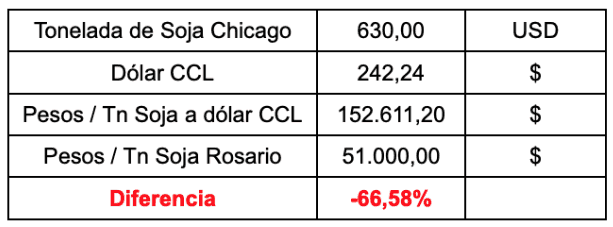If we analyze the evolution of the results of companies in our country, fundamentally those that have survived the avatars of the economy of the last 100 years, we could classify in these sectors the best performance.First of all, we will find all kinds of monopolies offered in our market. Since public services, which, in spite of tariff controls, comply with quality of service, lack of investment and non-compliance in the payments of their suppliers, differences between incomes and contractual obligations, up to food suppliers, cleaning products, hygiene, steel laminates, aluminum, plastic industry inputs, supermarkets, banks, etc.Argentine entrepreneurs have understood very well that the best deal is to concentrate supply and whether it is primary products, those that the rest of the industry needs for its much better production.A privileged place has all the signatures that do business with the public sector. Despite complaints about the forms of payment and the administrative and bureaucratic complexities that involve complying with public contracting regulations, they make barriers so that new under-experienced companies can enter this world so profitable.Thirdly, we can incorporate large agricultural producers, which thanks to technological innovations have multiplied production and low risk. Transgenic seeds, fertilizers, direct sowing and more efficient machines have improved the results in the last 20 years.Instead, all the medium and light industries that had market reservations, some difficulties in granting import licences and others for difficulties in accessing the official exchange market. In situations where the gap between the different changes, officers and financials fluctuate between 50% and 100%, it is inevitable to leave the cheap dollars to satisfy the demand of essential products, industrial raw materials, medicines, critical technology and something else.The business of the companies goes through the Trade Secretariat, the Central Bank and the external trade office of the bank with which they work. The gap is so great that there is no efficiency, productivity, prize or price that competes. That is why both those who access the official dollar benefits, as those who should seek other alternative paths, fix their prices depending on the most affordable dollar, that is the most expensive, circumstantially, often earns a lot of arbitrating money among the dollars. We observe very clearly in the textile industry. The main brands in our country have prices equal to or greater than those of some international proposals, the point is that income in Argentina is 50% less than in other squares.Certainly, what happens in the automotive sector is one of the most attractive. While the dealers acquire the vehicles that sell the official exchange rate, in many cases offer them the value of the dollar ticket, i.e. almost double what costs them. For this they use various maneuvers, as available vehicles are from customers who previously bought them or other sort of triangulations. This leads to a number of changes, mainly tax, because when making dollars do so to the official change, that is, they claim to receive many less weights than they actually receive, obviously without taxing for that difference, that includes VAT, profits, gross revenues and tax on debts and bank credits.The argument in favor of these irregular practices is that they have few places to import vehicles and that with the few they receive must support the structures of the business. An irregular licensing market to import proposes uneven tax markets as well.Nothing can also overcome the magnificent business of being state in Argentina.As it professes the phrase that to show a button, we analyze the soy exporting sector, which summarizes in an activity many of the circumstances that Argentine entrepreneurs and workers are living: The State perceives between taxes, exchange rate differences and retentions 66.58% of the soybean sale. This does not consider the taxes resulting from all industry-related activities, such as VAT, gross income, profits from the entire industrial chain, seed manufacturers, work contractors, machine suppliers and tools, trucks and trucks, personal meals, and dozens of activities taxed by their activities.In total, more than 75% of the selling price returns through different forms to the State, all without investing a single weight, without taking a single risk. The climate, traffic safety, international prices, collection management, money movement, labor relations and all business risks are alien to the collector.For all these reasons, being the State, is undoubtedly the best business of the Argentine Republic. However, despite having endless business profitability, the inefficiency of managers makes nothing reach, even having such good business.
The State perceives between taxes, exchange rate differences and retentions 66.58% of the soybean sale. This does not consider the taxes resulting from all industry-related activities, such as VAT, gross income, profits from the entire industrial chain, seed manufacturers, work contractors, machine suppliers and tools, trucks and trucks, personal meals, and dozens of activities taxed by their activities.In total, more than 75% of the selling price returns through different forms to the State, all without investing a single weight, without taking a single risk. The climate, traffic safety, international prices, collection management, money movement, labor relations and all business risks are alien to the collector.For all these reasons, being the State, is undoubtedly the best business of the Argentine Republic. However, despite having endless business profitability, the inefficiency of managers makes nothing reach, even having such good business.
6/29/2022 - economy-and-finance
The best business in Argentina
Do you want to validate this article?
By validating, you are certifying that the published information is correct, helping us fight against misinformation.

horacio gustavo ammaturo
I am Gustavo Ammaturo. I have a degree in Economics. CEO and Director of infrastructure, energy and telecommunications companies. Founder and mentor of Fintech, DeFi and software development companies. Blockchain Product Designer.
Total Views: 27


Comments